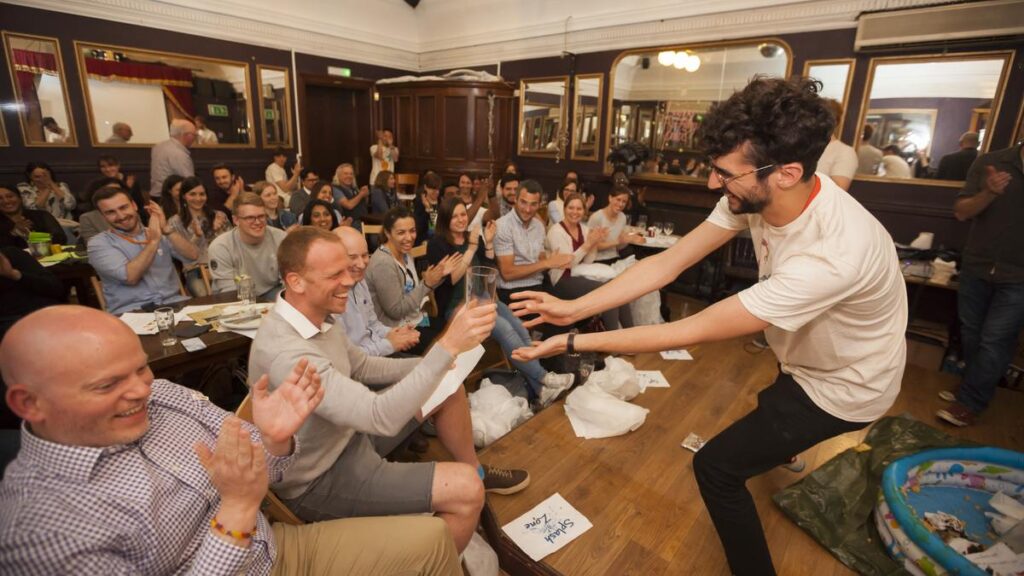Discussing particle physics over a pint; debating the future of food sustainability over complimentary peanuts. Scientists hobnobbing with the public in a pub is not really what comes to mind when you think about serious science discussions. But that’s what Pint of Science wants to change.
The event, started by research scientists Praveen Paul and Michael Motskin, of the Imperial College London, in the U.K. 12 years ago, is today an annual global festival taking place in 500 cities across 27 countries. And this year, it is making its India debut in Bengaluru, Pune and New Delhi.
Making science accessible
Over the past decade, despite India’s towering achievements in science and technology, data from the UNESCO Institute of Statistics shows that there’s been a near-stagnant investment in research and development (0.65% of GDP). In comparison, China spends 2.43%, the U.S. 3.46%, and South Korea 4.93%. It doesn’t help that authoritarian governments have had a long-standing history of delaying or cutting funding, using political rhetoric to underplay the value of this field of study in the country and encouraging disbelief and doubt in the sciences.
Besides pedagogy, which makes science seem “scary and unapproachable”, there is also the problem of equating science with application. “Policymakers and politicians who make decisions of how much money should go into research, don’t understand the importance of ‘the why’ behind the research, especially with regards to fundamental sciences [such as physics, chemistry, microbiology],” says astrophysicist Debarati Chatterjee, an associate professor at the Inter-University Centre for Astronomy and Astrophysics in Pune. “Such research pushes our horizons of knowledge; they don’t have immediate results or applications.”
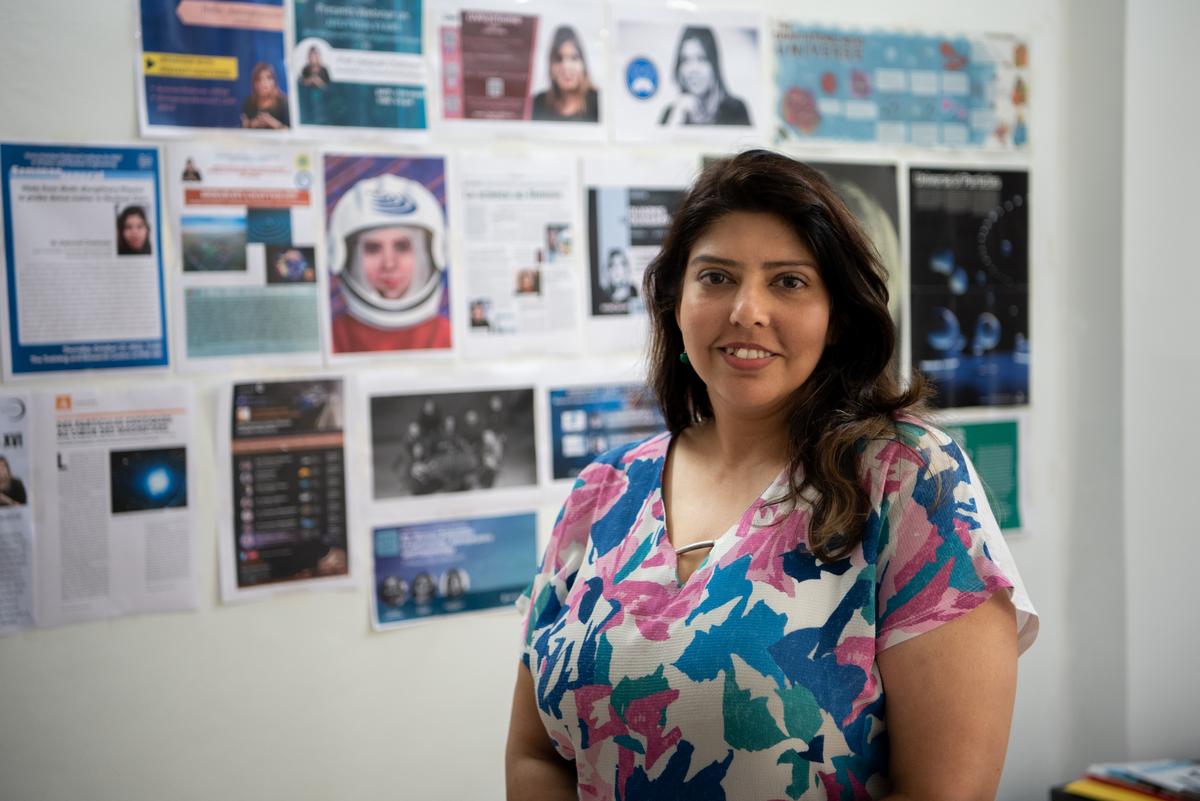
Debarati Chatterjee
In 2017, Chatterjee — who is “heavily involved in outreach programmes focussed on inspiring and encouraging the general public, especially women, to do science through fun means” — was invited to present her research at a local pub. At the time, she was working on her postdoctorate at the Université de Caen Normandie in France. “I think I made a very pedagogical talk my first time. But after I incorporated animation into my presentation [at a later event], I remember it leading to vivid discussions,” she says. After participating in three editions in the subsequent years, volunteering at one and “observing its impact” on people (as well as getting new perspectives on her own research), Chatterjee decided she wanted to bring Pint of Science to India. “I love the informal and accessible format,” she says, adding that public-facing events that communicate science research to the public “will have them paying closer attention to this field because it is being funded by taxpayers’ money”.
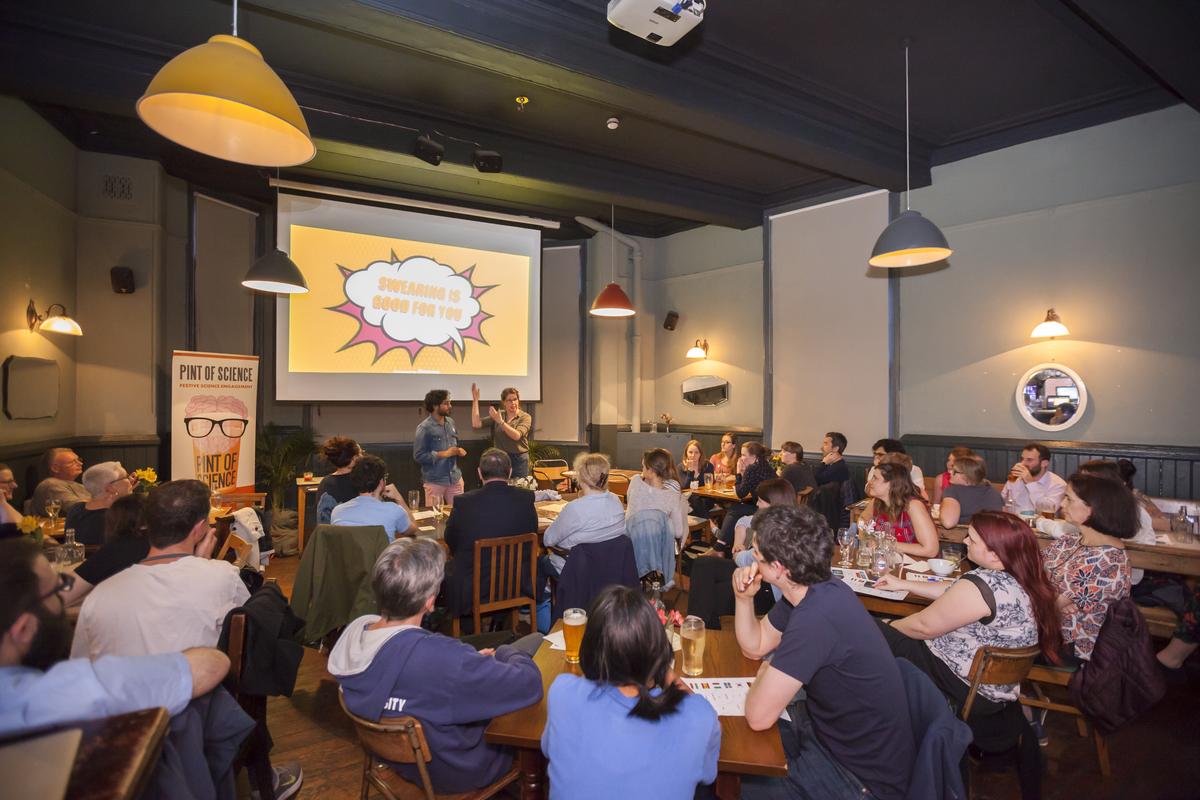
Pint of Science
| Photo Credit:
Nick Rutter

“The everydayness of a pub or a cafe changes the dynamic. We already know we might meet someone who doesn’t come from our world, so we’re already open to listen to new information.”Basundhara Ghosh Physicist
Breaking the classroom effect
While Chatterjee cannot imagine a science talk in a pub while she was a student in India, today the presence of a craft beer and cafe culture, and a “general public that has matured and is open to using these spaces to learn as well”, the timing feels right. “I have attended language meet-ups and craft workshops” at these venues, she says. “The younger crowd is ready for this shake up; in fact they are enthusiastic about it.”
Interestingly, in Pune, a similar format has been running successfully for almost a decade. Nakul Bhonsle, the founder-director of Pune’s Great State Aleworks, and his friend, climate scientist Anoop Mahajan, inspired by the Pint of Science’s format, have been running ‘Science on Tap’ at their microbrewery since 2016. “Despite its huge research institutes, there’s no interaction between the scientific community and the general public in Pune,” says Bhonsle. “Anoop had heard of the concept in the U.K. and we adapted it. It’s been a great event because it brings a different kind of audience into the microbrewery.” He attributes its success “to the sessions being casual, and never feeling like a classroom or seminar”.
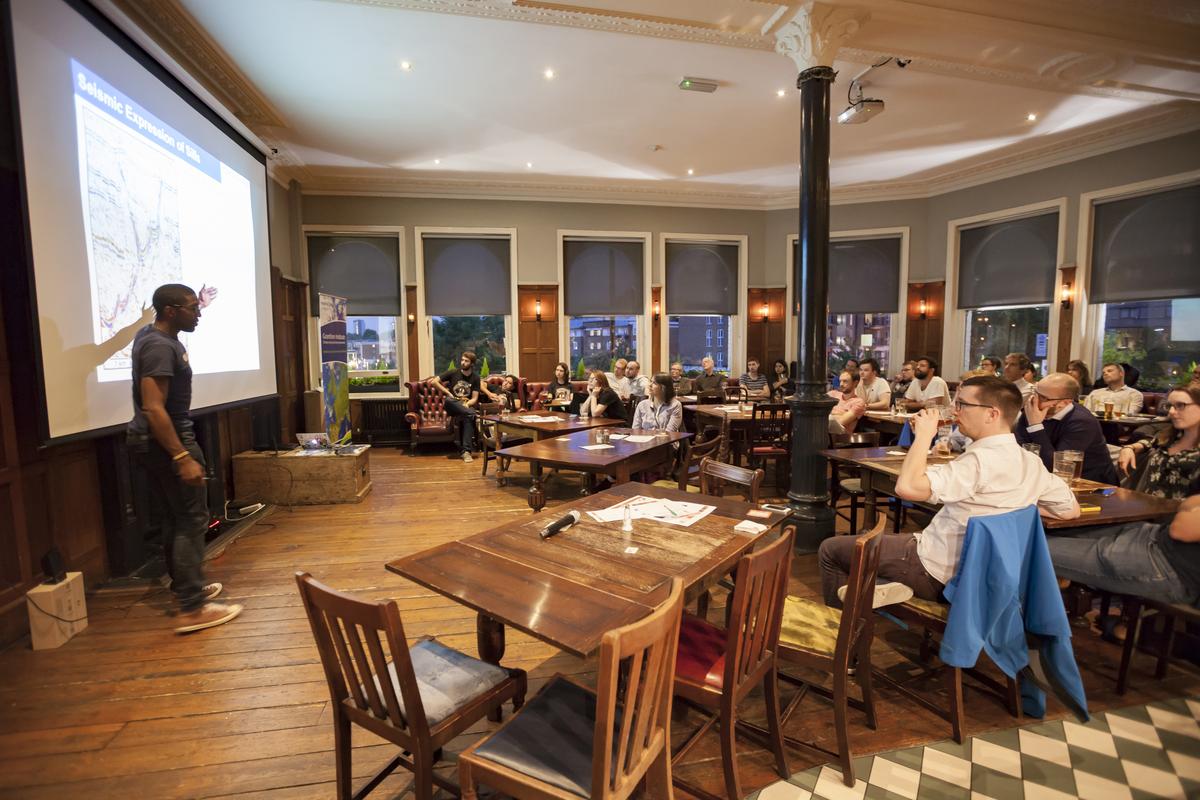
Pint of Science
| Photo Credit:
Nick Rutter
Theoretical physicist Basundhara Ghosh from Bengaluru’s Indian Institute of Science echoes how the setting changes the “perception of the sciences”. “[At IISc], I’ve seen how programmes that invite the public into these institutions are very popular, across all ages. Everyone is still fascinated by black holes, galaxies and dark matter, says Ghosh. “But there’s a gap between understanding the work actually being done and the public’s curiosity for it.” And she feels events like Pint of Science “are building a middle ground” for these gaps to be reduced.

Basundhara Ghosh
Origin story
Before it took on this more organised version, Pint of Science was an event called ‘Meet the Researchers’ in 2012. Paul and Motskin organised it to bring people affected by Parkinson’s, Alzheimer’s, motor neurone disease and multiple sclerosis into their research labs and help them understand the developments and stopgaps in the research being done to control and cure these diseases. It was a huge success. The following year in May, the duo shifted the location from their lab to pubs, and ran the first Pint of Science festival across three cities in the U.K.
Memes and humour to break the ice
At the inaugural India edition, Ghosh will pepper her talk on ‘The Universe is expanding – What’s the big deal?’ with memes, pop culture references and a sense of humour. “In our contemporary world, memes act as mnemonics — like the anime boy releasing the butterfly, or the scans of neurons lighting up — so adding them into my presentation along with technical diagrams will allow people to retain the information,” she says.
Another scientist spicing up his Pint of Science presentation, ‘The Yin and Yang of Tree Invasion on Mountain Birds’, with visual elements is Jobin Varughese. The ecologist and postdoctorate fellow at Bengaluru’s National Centre of Biological Sciences switched careers while studying landscape architecture, after a component on ecology “that focussed on preserving native plants and birds” piqued his interest.
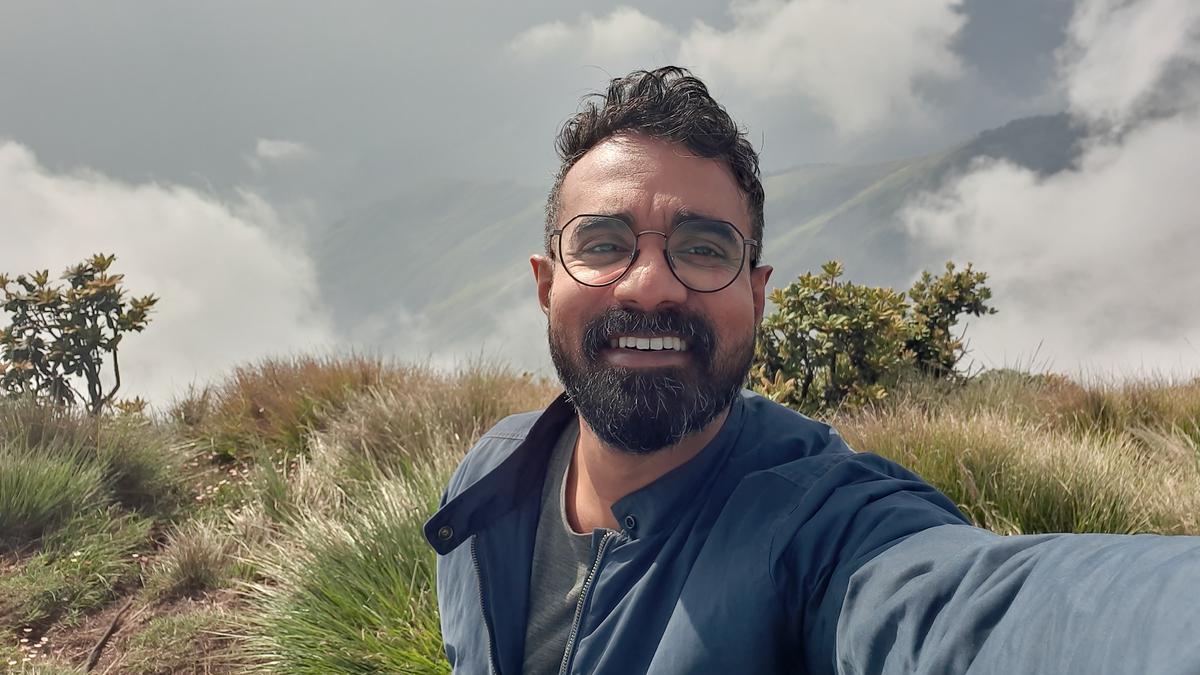
Jobin Varughese
He started off by volunteering with bird census counts before realising that he could pursue science as a career. “I didn’t know people were studying birds in India,” he admits, adding that the “different scientists and research topics being programmed as part of Pint of Science will open the public’s imagination to other fields of study”. For Varughese, his participation in Pint of Science makes complete sense. “I used to be on the other side, and so, I feel I have the ability to translate my research for the general audience.”
Pint of Science takes place on May 19, 20 and 21 in Bengaluru, Pune and New Delhi. There’s no age limit. For tickets, visit pintofscience.in.
The writer and poet is based in Bengaluru.
Published – May 15, 2025 08:08 am IST

